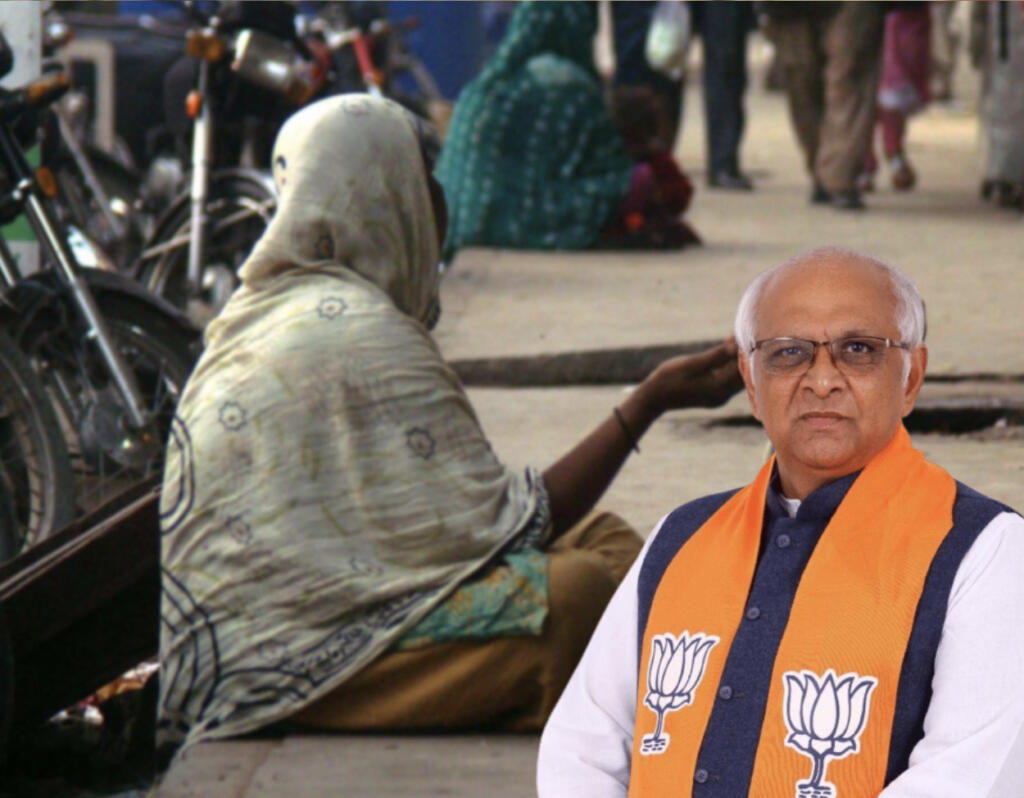Gujarat government deserves to be applauded for the massive development in infrastructure, law, and order, and other factors in the state. Now, it has stepped in with an initiative to rehabilitate beggars and impoverished people in eight major cities of the state.
Gujarat Government’s drive to provide shelter to beggars
On Thursday, the state government swung into action to begin a drive that provides shelter to beggars and destitute people in eight prominent cities of Gujarat.
An official reported, “Minister of State for Social Justice and Empowerment Manisha Vakil held a meeting with stakeholders for effective implementation of the drive that began from Vadodara.”
The decision came a few days after state BJP president CR Paatil rebuked Vadodara Mayor Keyur Rokadia for poor strategies to deal with the issue of stray cattle and beggars in the city.
Vakil, who is an MLA from Vadodara city, held a meeting to find a long-term solution for beggars on city roads. While interacting with the media, he reported, “We are launching this drive to rehabilitate beggars from Vadodara. Our aim is to cover all eight major cities of Gujarat. We have to identify beggars and bring them to shelter homes. Shelter homes will have to take care of them till they become capable of starting a new life and stand on their feet.”
Under the initiative, the Government aims at providing skill-based training to beggars and destitute people that will eventually help them in earning a livelihood. Additionally, they will also be provided assistance in buying a home under government schemes.
Talking about the measures that will be taken if beggars continue to beg despite the government’s assistance, Vakil asserted, “Beggars and destitute people will be given a unique identification number, linked with their Aadhaar cards, so that they can be identified and sent back to their hometowns if they are caught begging again.”
Gujarat’s unstoppable development
After a devastating earthquake that had rocked Gujarat on 26 January 2001, with its epicenter in Bhuj, the entire state was destroyed with the death of approximately 17000-20000 people and loss of properties worth several crores. Taking cognizance of the tragedy, stepped in the then CM Narendra Modi. Instead of indulging in politics and whataboutery, he himself took the charge of reconstruction efforts in Gujarat the moment he took oath as CM of Gujarat.
As a result, it hardly took much time for the Gujarat government to reconstruct the devastated town of Bhuj and repair the damaged properties in Ahmedabad. It is this very initiative that later laid the foundation of the much-talked-about Gujarat model of development.
Afterwards, Shashi Tharoor, who is otherwise extremely vicious when it comes to criticising PM Modi, had actually appreciated the Gujarat model of development. He had stated, “The Gujarat model of reconstruction after the 2001 earthquake is an excellent model to be adopted for the reconstruction of Kerala. We should learn from Gujarat and follow the methods implemented there.”
Read more: Shashi Tharoor finally accepts the Gujarat model of development
In addition to that, NITI (National Institution for Transforming India) Aayog, a policy think tank of the Government of India, established with the aim to achieve Sustainable Development Goals and to enhance cooperative federalism, had depicted Gujarat as the best-performing state for composite water management in 2018.
Read more: To solve water woes, Gujarat govt. to set up seawater desalination mega plant in Jamnagar
As per 2011 census data, there are over 4 lakh beggars in India. At 81,000, West Bengal has the highest number of beggars, followed by Uttar Pradesh, where the tally stands at 65,000. Thus, to ensure a minimum standard of living for every citizen, the Gujarat Government has come up with a commendable initiative to rehabilitate beggars. With this initiative, Gujarat could soon become India’s Beggar-free state.
